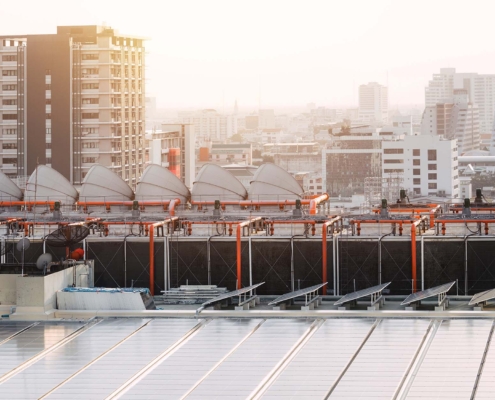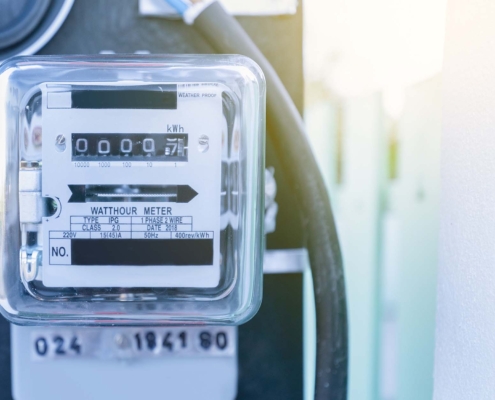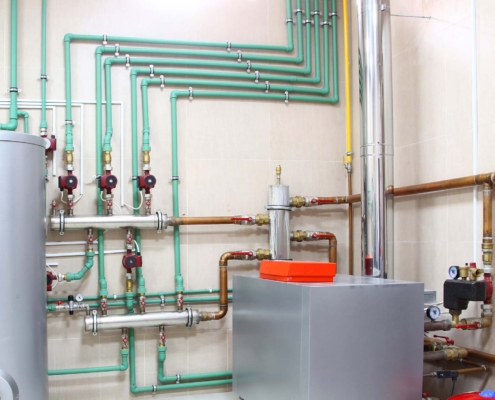 https://www.aircomfort.com/wp-content/uploads/2022/10/What-Is-IECC-and-How-Does-It-Affect-Your-Business__.jpg
1250
2000
Ike Oji
/wp-content/uploads/2021/08/AC_Logo_FIN_-wTag.png
Ike Oji2022-10-31 09:00:002023-04-27 15:24:16What is the IECC?
https://www.aircomfort.com/wp-content/uploads/2022/10/What-Is-IECC-and-How-Does-It-Affect-Your-Business__.jpg
1250
2000
Ike Oji
/wp-content/uploads/2021/08/AC_Logo_FIN_-wTag.png
Ike Oji2022-10-31 09:00:002023-04-27 15:24:16What is the IECC?The Effects of Air Conditioner Humidity Problems
Does humidity affect air conditioners? Does air conditioning reduce humidity? Find out how to tell if your air conditioner is the problem or if humidity is to blame.
How Does High Humidity Affect Air Conditioning?
Central air conditioning units work by removing hot air from your building and blowing in fresh, cool air. Central air conditioning also reduces excessive humidity levels by condensing water vapor into liquid and then draining the excess. With proper unit sizing and installation, this system effectively removes excess moisture from your home in most conditions. High humidity cancels out the air conditioner’s cooling effect. When the humidity is too high, your building feels warmer than it is because of low indoor air quality. You’ll know that the humidity in your building is too high if:
- The air in your building feels moist.
- There is a damp or musty smell in parts of your building.
- Your windows are foggy.
- You have to run the air conditioner at a lower thermostat setting for an extended period.
Common Air Conditioner Humidity Problems
Excessive humidity can cause an air conditioner to work below peak levels, but sometimes an air conditioner cannot handle a particular job. It is crucial to identify the cause of your problem and come up with a strategy to improve your indoor air quality.
Oversized System
An oversized AC system does a poor job of controlling both temperature and humidity. That’s because the powerful compressor turns on and off too frequently, so the system never runs long enough to remove moisture from the air. You may need to install a smaller capacity AC system to fix this problem and improve energy efficiency.
Single Speed
An air conditioner that’s only capable of running at one speed, on or off—can have the same problems as one that’s too large when it comes to HVAC humidity control. When the unit can only run at one speed, it turns on and runs full blast until the air reaches the set temperature. Then it turns off until the temperature once again goes above the thermostat threshold. That often means the unit doesn’t run consistently enough to remove humidity. Consider investing in an HVAC system that features variable speeds.
Negative Air Pressure
Negative air pressure results in too much air being vented from your ducts. This is usually the result of a poorly designed ventilation system. When you have negative pressure, the air tries to balance itself by drawing in more outside air any way that it can. When the relative humidity outside gets above the 70s, muggy air is drawn in the building. Changes to your ventilation system design may be needed to correct this issue.
Leaving the Fan On
The fan moves air even without the AC running, so you might feel like you’re getting some cooling benefit. What you don’t realize is that you’re making the humidity conditions worse. You can accidentally blow the moisture your AC has removed back into the space before it has a chance to drain away.
Old Unit
As your air conditioner ages, parts wear, and it may not run as efficiently as it used to. That tendency is increased when the system hasn’t been regularly maintained. In addition to inconsistent temperatures and inadequate cooling, you’ll start to notice poor HVAC humidity control. At this point, you have to decide whether to replace or repair your existing unit.
Find out how you can improve your facility’s indoor air quality.
Maintenance Your System to Avoid Air Conditioner Humidity Problems
There are simple steps you can take to maintain a properly functioning air conditioning system. Cleaning and replacing air filters regularly improves indoor air quality. Annual maintenance visits are recommended to address small issues before they become big problems.
Stay Comfortable and Worry-Free
Air Comfort is here to address all your air conditioning humidity problems to keep everyone in your facility comfortable. Air Comfort improves your indoor air quality, makes sure your air conditioner doesn’t work harder than it needs to, and lowers your energy bills.
An Air Comfort maintenance plan takes care of your equipment, allowing it to run more efficiently and last longer. Regular maintenance fixes small problems before they become big ones that can cost your lost time and revenue. Our customized service plans are designed to ensure your needs are taken care of and save you from unnecessary costs.
Related Postings
 https://www.aircomfort.com/wp-content/uploads/2022/10/What-Is-IECC-and-How-Does-It-Affect-Your-Business__.jpg
1250
2000
Ike Oji
/wp-content/uploads/2021/08/AC_Logo_FIN_-wTag.png
Ike Oji2022-10-31 09:00:002023-04-27 15:24:16What is the IECC?
https://www.aircomfort.com/wp-content/uploads/2022/10/What-Is-IECC-and-How-Does-It-Affect-Your-Business__.jpg
1250
2000
Ike Oji
/wp-content/uploads/2021/08/AC_Logo_FIN_-wTag.png
Ike Oji2022-10-31 09:00:002023-04-27 15:24:16What is the IECC? https://www.aircomfort.com/wp-content/uploads/2022/09/Electrical-equipment.energy-meter-is-a-device-that-measures-the-amount-of-electric-energy-consumed-by-a-residence.jpg
1250
2000
Valeriia Mamleeva
/wp-content/uploads/2021/08/AC_Logo_FIN_-wTag.png
Valeriia Mamleeva2022-09-22 09:00:052023-04-27 15:24:16How To Reduce Energy Use in Commercial Buildings
https://www.aircomfort.com/wp-content/uploads/2022/09/Electrical-equipment.energy-meter-is-a-device-that-measures-the-amount-of-electric-energy-consumed-by-a-residence.jpg
1250
2000
Valeriia Mamleeva
/wp-content/uploads/2021/08/AC_Logo_FIN_-wTag.png
Valeriia Mamleeva2022-09-22 09:00:052023-04-27 15:24:16How To Reduce Energy Use in Commercial Buildings https://www.aircomfort.com/wp-content/uploads/2022/09/boiler-room_.jpg
1250
2000
Valeriia Mamleeva
/wp-content/uploads/2021/08/AC_Logo_FIN_-wTag.png
Valeriia Mamleeva2022-09-15 09:00:372023-04-27 15:24:16How To Identify Common Boiler Problems
https://www.aircomfort.com/wp-content/uploads/2022/09/boiler-room_.jpg
1250
2000
Valeriia Mamleeva
/wp-content/uploads/2021/08/AC_Logo_FIN_-wTag.png
Valeriia Mamleeva2022-09-15 09:00:372023-04-27 15:24:16How To Identify Common Boiler Problems

About
Air Comfort’s mission is to work closely with customers to provide a true “comfort level” for their businesses, with uninterrupted performance and round-the-clock reliability.


